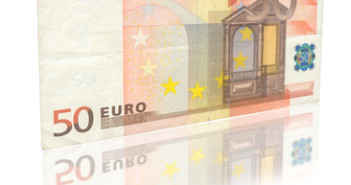Euro dollar is edging down towards the pivotal 1.30 level after yesterday’s (May 7th) sharp decline. The mood is the markets is anything but calm after the dramatic elections in France and Greece. The margin of victory for the Socialists may have been small, but the sharp shift to the left will be enormous. With the inconclusive results of the Greek election, there are fears that the bailout package may be in jeopardy. There are no key releases today in the US or the Euro-zone, and France will enjoy a well-needed holiday after a tumultuous weekend.
Here’s an update on technicals, fundamentals and what’s going on in the markets.
EUR/USD Technicals
- Asian session: EUR/USD dropped to a low of 1.3016, and consolidated at 1.3017. The pair is unchanged in the European session, trading at 1.3020.
- Current range: 1.30 to 1.3050.
 
- Further levels in both directions: Below: 1.2945, 1.2873, 1.2760, 1.2660 and 1.2623.
- Above: 1.3110, 1.3165, 1.3212, 1.33, 1.34, 1.3437, 1.3486, 1.3550 and 1.3615.
- 1.3050 remains a fluid line, currently providing weak resistance to the pair.Â
- 1.30Â continues to provide weak support.
Euro/Dollar is edging downwards towards 1.30 – click on the graph to enlarge.
EUR/USD Fundamentals
- 10:00 German Industrial Production. Exp. +0.8%.
- 12:30 ECB President Draghi Speaks.
- 14:00 IBD/TIPP Economic Optimism. Exp. 50.3 points.
- 23:15 FOMC Member Lacker Speaks.
For more events later in the week, see the Euro dollar
EUR/USD Sentiment
- French elections fallout: The markets are nervously bracing for the new era in France. President-elect Francois Hollande has said he wants to renegotiate the euro zone fiscal pact in order to stimulate growth in the region, rather than resort to harsh austerity measures.  Hollande’s left-of-center views will surely impact on the markets, and there are dire predictions that EUR/USD could eventually plummet to 1.20. His election will mark a significant turn from austerity towards growth, perhaps a European Spring. Meanwhile, the euro is slumping badly, and is struggling to stay above the 1.30 level.
- Political uncertainty grips Greece: The voters in Greece were loud and angry, but the results were messy, with no party strong enough to rule on its own. Political instability is the last thing that Greece (or its lenders) need right now, but that is exactly where things stand after the inconclusive election results. Greece may not have a government in place in time for the next handout, but the ECB can do little more than plead for Greece to honor the bailout deal.
- Merkel suffers defeat in German elections: The German government was not able to escape the  weekend’s political turmoil, as Chancellor Merkel’s center-right coalition lost a key regional election. The results raise questions as to to the stability of Merkel’s government.
- Mixed unemployment data out of US: With all the turmoil in Europe, the markets shrugged off Friday’s mixed employment numbers. Non-Farm Payrolls were well below the market forecast, hitting a four-month low of just 120K. However, with revisions, the 120K improved to 154K. The Unemployment Rate brought better news, dropping a notch to 8.1%.
- Draghi Content to Stay Put: The president of the ECB sees the euro-zone economies still recovering in the second half of the year and passed the ball to the court of governments, not for the first time. As predicted, the ECB maintained its key interest rate at 1.0%. A rate cut next month is still a remote option, as the Euro-zone continues to struggle. His optimism pushed the euro higher, but not for a long time. Draghi will be making a speech today, and the markets will be listening closely.
- European recession deepening?: Euro-zone releases have been disappointing, notably the most recent PMI readings. Economic data is clearly pointing to a serious recession in Q2. For many countries, the recession is not new at all: Spain is the latest member of a growing list of European economies now in recession, joining the ranks of a host of others, including heavyweights Italy and the UK. Weak data out of Germany and France is sure to make matters worse. The euro is dropping, and with a new Socialist government in France and political deadlock in Greece, the currency could plummet against the US dollar.
- QE3 chances dropping: Ben Bernanke didn’t rule out QE3, but as time passes by, this option seems quite unlikely, and even Bill Gross joined Primary Dealers and retreated from his certainty that this move will come. A “hands off†policy of low interest rates for the foreseeable future is supportive for the greenback.



